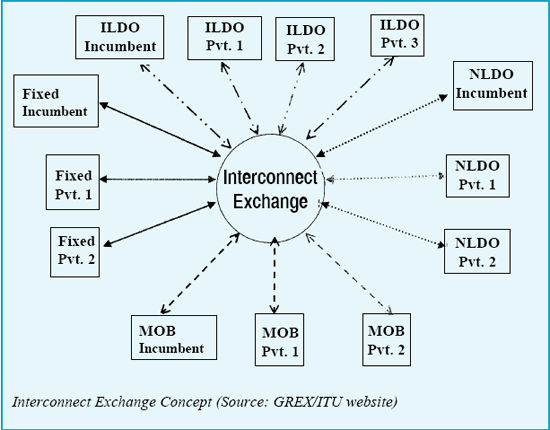
| 370 | IETE TECHNICAL REVIEW, Vol 23, No 6, 2006 |

4.5. The Benefits of an Interconnect Exchange to the Regulator The benefits of an Interconnect Exchange to the
|
4.6. Funding and Revenue Generation for Interconnect Exchange The interconnect Exchange should normally be funded by the industry on contribution basis. Alternatively it can be installed by a third party (interconnect operator) who should be approved by regulator or the industries associations. In rare cases it can be funded (partially or wholly) by Govt. or a neutral organizations. Being a common facility each operator may pay a small portion of the outgoing inter- operator call revenue for its operation. For additional facilities like Clearing House, reconciliation, MIS separate charge can be levied. If the exchange is setup by industry body it should be run on “not- forprofit” basis and charges for various services should be just enough to recover the cost. In case of third party operation, these charges should be determined by regulator taking into account all the underlying costs. |